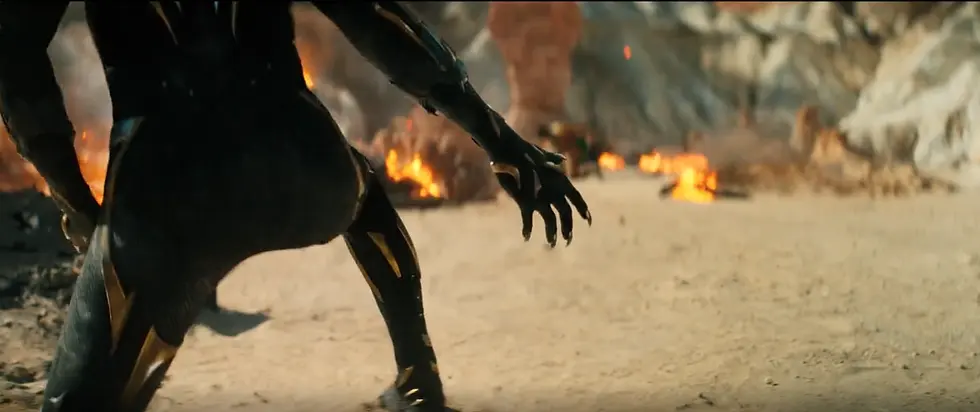Black Panther: Wakanda Forever // Film Review
- James McCleary
- Dec 9, 2022
- 2 min read
Epic and utterly sincere, Wakanda Forever has little interest in replacing Chadwick Boseman, and every interest in seeing what kind of world becomes of a comic book without its hero. Even Boseman’s image is withheld from us until late in the film, his total absence a suffocating weight on the rising drama elsewhere.

Like a true epic, Wakanda Forever is thick with story and character movement, to the extent that the shape of the piece and its conflicts sprawl wildly up until the last forty minutes, when every straggling idea combines into a cohesive whole. Even the trigger-happy Americans, who some have argued to be synergistic with other Marvel properties, ultimately have a darkly comic purpose in director Coogler’s overall vision for the piece.
But although the bubbling feud between Shuri (Letitia Wright) and Namor (Tenoch Muerta) is the film's functional plot, the story here is more a question of heroes and mythology, looking at the ways they are both created and taken from us. Namor is very much the inverse of T'Challa; ruthlessly protective of his own people at the expense of anyone who threatens them, while Shuri leans more towards the path of equally legendary villain Killmonger (Michael B Jordan), who believed in fighting until the very possibility of threat is extinct. In a cinemascape increasingly overwhelmed by superheroes with questionable morality, it is an ambitious approach to the question of what kind of character should be inheriting Boseman's mantle.

Much has been made of Angela Bassett's Golden Globe-winning and (as of now) Oscar-nominated performance as T'Challa's grieving mother, Queen Ramonda. There is a notable hesitance against giving awards recognition to Marvel films, given their reputation as both factory products and cheap crowdpleasers, however it is the opinion of this writer that Wakanda Forever is an exceptional case. Whether or not the film would have taken this shape if not for Boseman's death is irrelevant, as the result has proven to be a catalyst for several spectacularly expressive performances from those who knew him best, chief among them Bassett.
Indeed, it feels at times like Coogler was given a blank cheque from Marvel to memorialise Boseman as best his team could manage, and the result is something that feels suspiciously like a real film made on a blockbuster budget. It’s the sort of progress one could be forgiven for thinking would never come, particularly for such a Black-led production, and I can’t think of a more fitting final piece to Boseman’s legacy.
















Comments